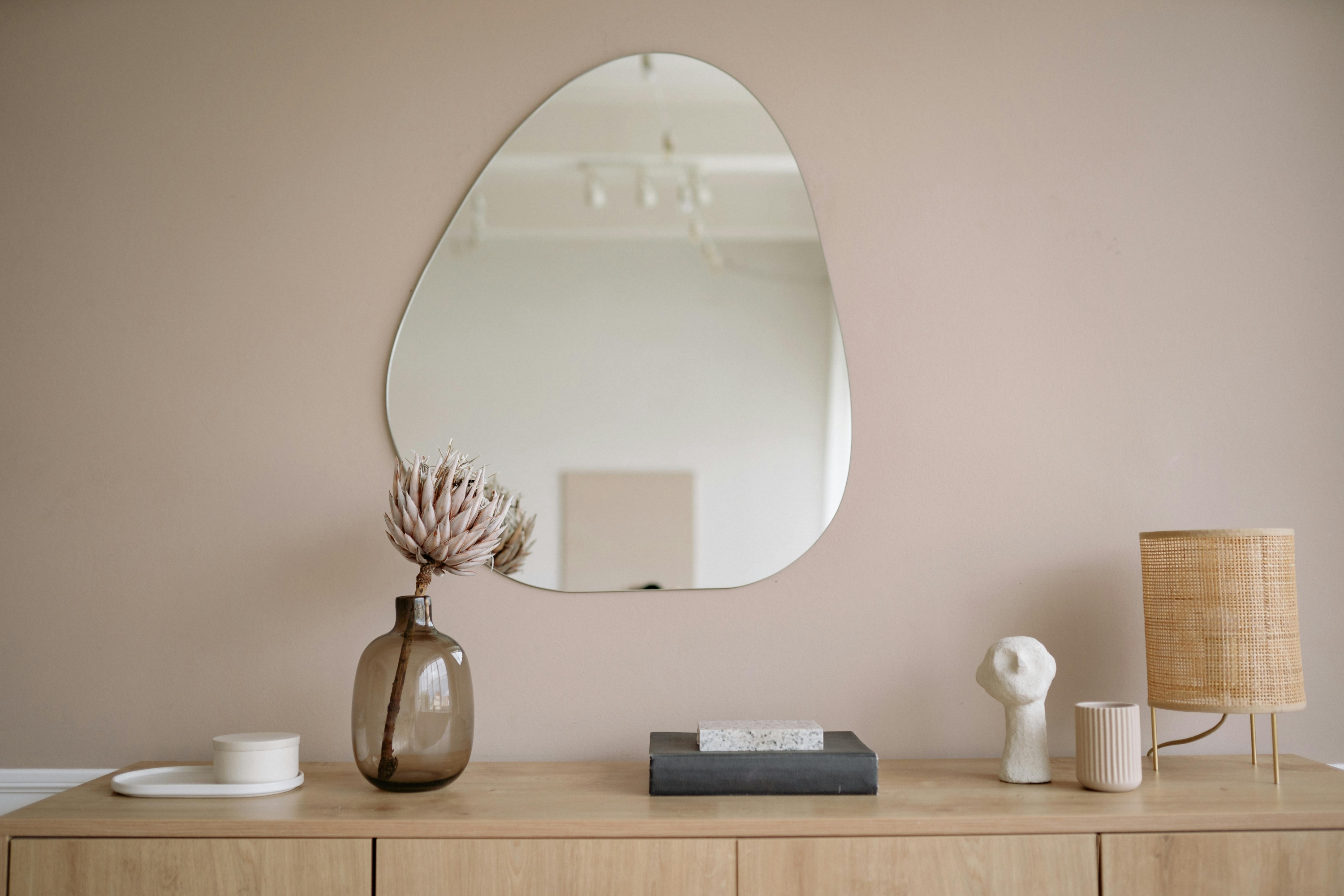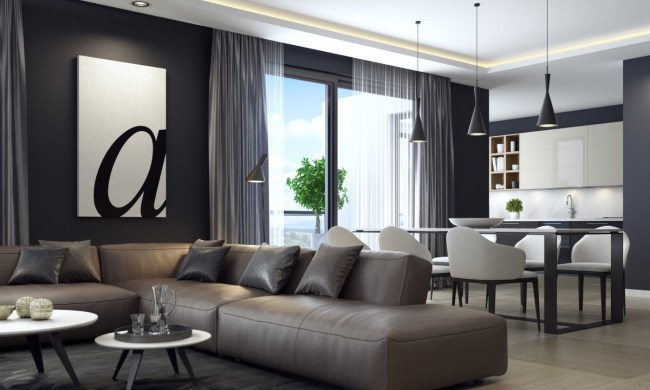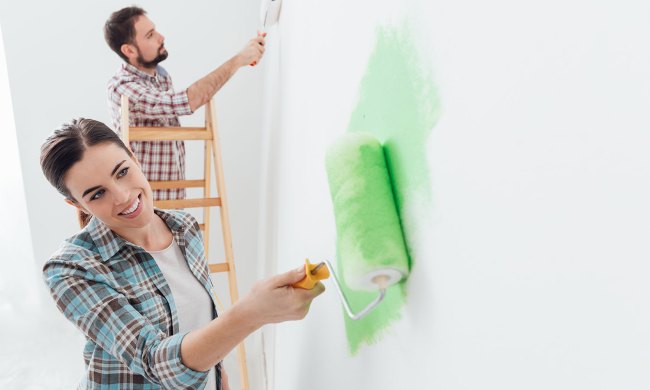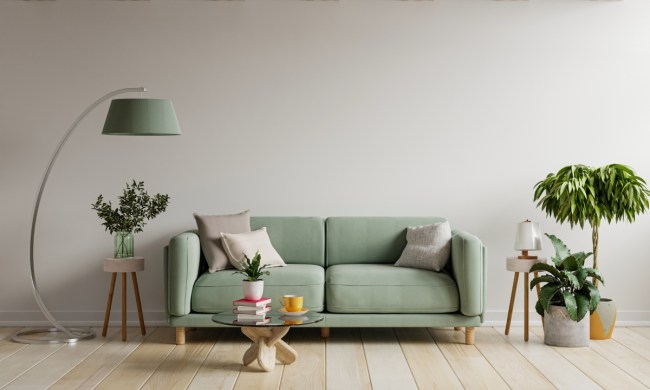An entryway gives your guests their first impression of your home, so you don’t want it to feel dark, drab, or cramped. The easiest solution? Add an entryway mirror. Mirrors are one of the best tools in a homeowner’s decor arsenal since they reflect light and automatically make a space feel brighter and more open. From vintage-looking mirrors to modern displays, you will surely find an entryway mirror that suits your home’s aesthetic and your personal style.
Sometimes, though, an entryway mirror isn’t the best idea. Find out when you should hang one and when you shouldn’t.
Why you should have an entryway mirror

There are plenty of great reasons to get a mirror for your entryway that go beyond just filling that blank space on your wall. Here are some of our favorite things mirrors can do.
Bring more light
Mirrors are an excellent way to bring light into your home. If your entryway is directly across from a window or other natural light source, a mirror can enhance that light and make your entrance feel bigger. Even without the light source, mirrors create the illusion of space.
However, without light to reflect in the mirror, you may lose some of the effects. If you have pretty lights nearby, this can work in a pinch. Consider your light source and consider how it will make your space feel. For example, reflecting a harsh fluorescent light might have the opposite effect of what you intend.
Reflect on your favorite things
Mirrors will add depth to your entryway, but contemplate what you’re reflecting back to your guests. If the mirror highlights architectural details that you love, it’s a good design choice. If your mirror reflects a feature you don’t like, you will dislike it twice as much.
Make a statement
A single big mirror can draw the eye up and provide the illusion of more space. Your entryway mirror should be front and center, with a few smaller decorations next to it that will busy up the area. However, you want to ensure that your mirror isn’t hanging too high.
Get a mirror that’s big enough to stretch up the wall with the bottom of the frame around 48 inches from the floor. Also, match the width of the mirror to the table you have in your entryway or to around three-fourths of the wall space if you don’t have furniture.
If you can’t find a suitable mirror to match those dimensions, it’s best to wait or find an alternative. And if you aren’t sure, try having someone hold the mirror in a few different positions to see how you feel when you walk into your entryway.
Create a functional space
A mirror in the entryway gives you one last look before you’re out the door. Want to check how your outfit looks or to make sure you styled your hair exactly as you’d like it? An entryway mirror is perfect for that.
A mirror can also add some security to your home — after all, there’s a reason stores use them for that purpose. While it’s not likely an intruder will enter your home, having more reflective surfaces gives you a better view of your whole home.
Things to avoid (potentially) when putting a mirror on your entryway wall
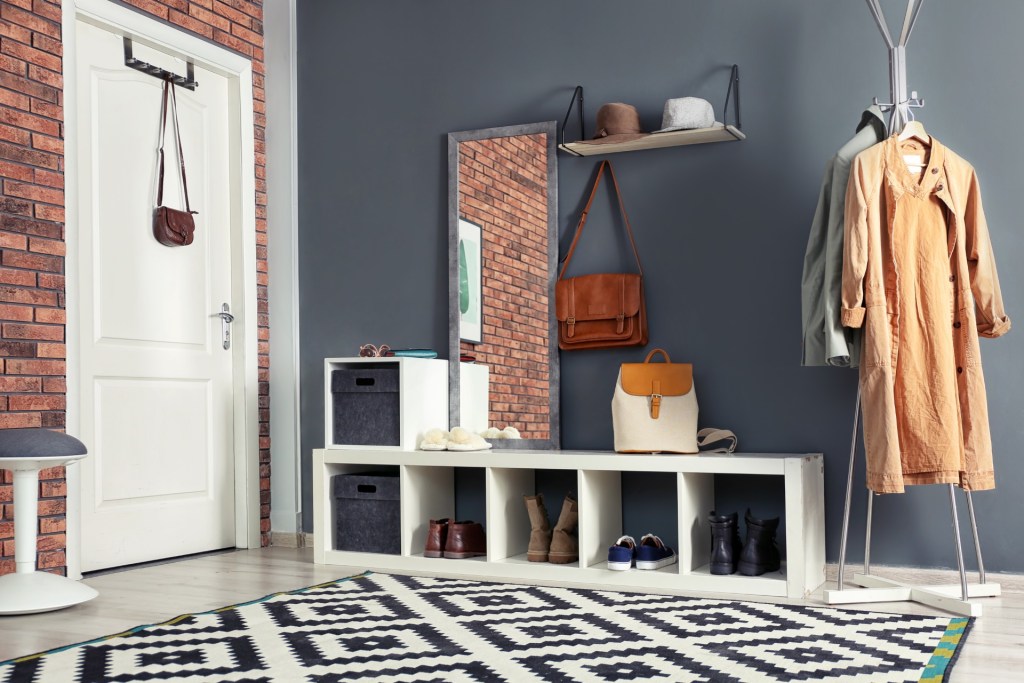
There are a few reasons you may want to avoid hanging a mirror in your entryway.
Improper feng shui
Should you hang a mirror right at your front door? If you follow the principles of feng shui, you may want to reconsider the entryway mirror. Hanging a mirror opposite the front door can rob you of money and opportunity, causing you to work harder for what you have, according to feng shui practices. However, you should consult a feng shui expert for your particular space and its energy needs. If you aren’t a follower of feng shui but want to be safe rather than sorry, you might try it for a set period of time to see how the energy feels.
Here are a few simple ways to adhere to the principles of feng shui:
- Relocate the mirror to another area of your house.
- Move the mirror so it isn’t in line with the door or reflecting the view of the door.
- If the mirror can’t come down, use fabric and other design elements to cover it.
- If the mirror doesn’t work anywhere else in your home, consider donating or selling the mirror.
Unwelcome reflections
Once again, if your mirror is only reflecting design features that you don’t like, hanging a mirror isn’t going to help you feel any better about the space. Wait until you’ve made the changes you want in your home’s decor, or choose another statement piece to lift the design of the entry.
No wall stability
Mirrors are heavy, and the last thing you need is for your mirror to come crashing down on your guests at the front door. If your entryway doesn’t have the studs to stabilize a heavy mirror, you might reconsider your choice of decor. One way to stabilize a mirror is to rest the bottom of it on a table, helping hold the bulk of the weight. Invest in sinkers that expand throughout the drywall for better grip, or skip the heavy frame and use L-hooks to hold the mirror.
What is the best mirror shape for an entryway?
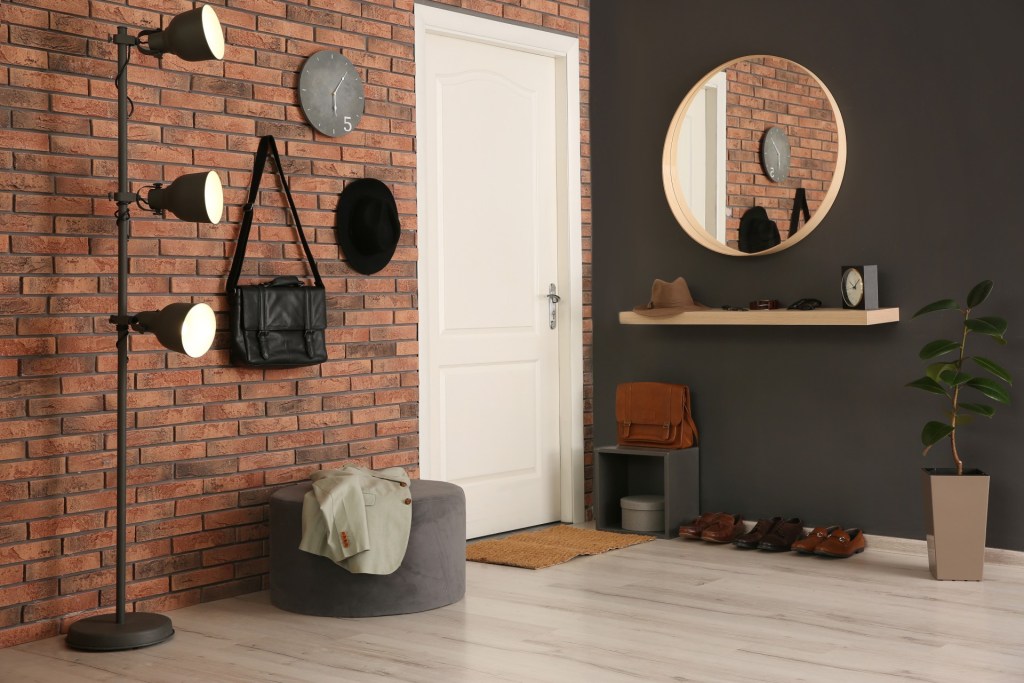
While placement is an important part of setting up your entryway mirror, the size and shape can also be a game changer for your space. Most homeowners and designers will opt for a simple curved or rounded entryway mirror to offset the boxy and rectangular look of the entryway.
These mirrors are often circular or placed vertically to raise the look of the space and create an open effect. Though, more traditional styles may favor a horizontal mirror, particularly if the entryway is long and slender. The shape of your mirror will greatly depend on the space available to you.
When to use a floor mirror in your entryway
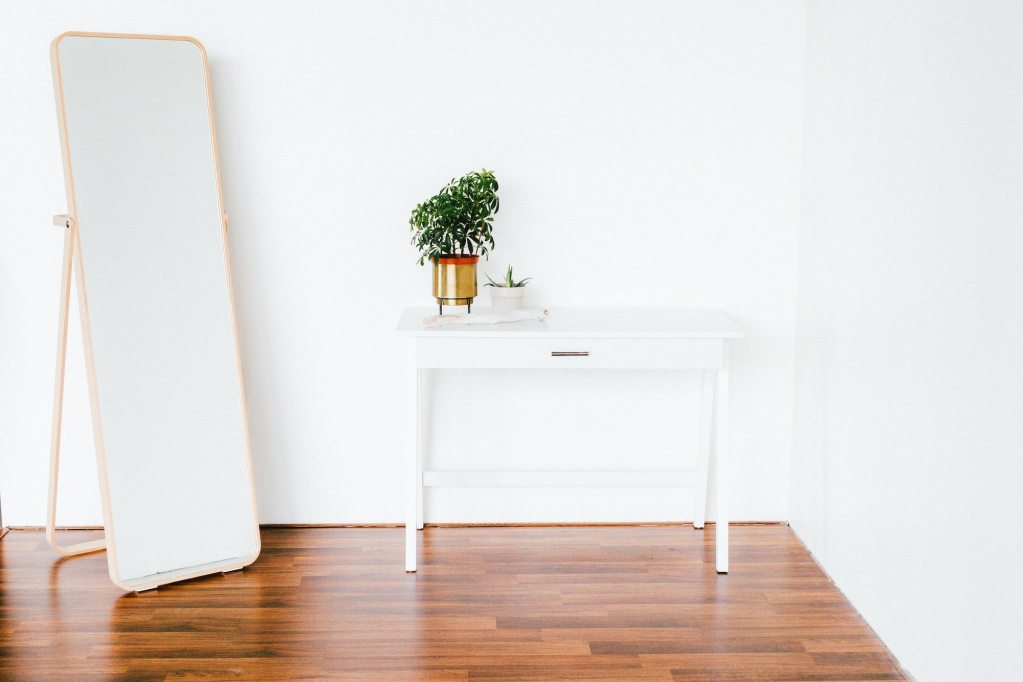
Using a floor mirror in an entryway offers distinct advantages over a wall mirror when it comes to both decor and functionality. A floor mirror can make a powerful statement, serving as a prominent focal point that draws attention and adds depth to the space. Its reflective surface can also brighten up a dimly lit entryway by bouncing light around, creating a more welcoming ambiance.
Furthermore, floor mirrors can be more versatile than wall mirrors. They can be leaned against a wall when there’s no stud to hold a wall mirror, or they can be placed strategically to reflect surrounding decor elements, such as artwork or a stylish console table. This versatility allows for more creative and dynamic design possibilities in your entryway.
Of course, in terms of functionality, a floor mirror has the added benefit of allowing for a quick last-minute top-to-bottom check of your appearance before heading out the door, making it especially practical in a high-traffic area like the entryway. It offers a full-length view of your outfit, which can be essential for ensuring you look your best every day.
Best placement of an entryway mirror

Every home is different, so it can be challenging to know the best spot for an entryway mirror. Here are some of our mirror design tips.
Beside the front door
A great place to hang a wall entryway mirror is beside the front door. You’ll want to place the mirror far enough away that the door won’t bump the frame when it’s open all the way. Having a door stopper can also help prevent any bumping. Hang your mirror on the wall beside the door so you can do a quick touch-up on the way out.
Above a console table
Console tables are a great place for keys, wallets, bags, and other necessities. Hang a mirror over a console table to make the space both more appealing and functional.
In a transition space
If you have a long hallway to the entrance of your home or your home’s architecture is a bit awkward, we recommend hanging or placing a standing mirror in the transition space. If you have any blank walls or awakened nooks and crannies, consider adding a mirror to give the space new life.
A well-placed mirror can double your natural light and help your entryway feel bigger than it actually is. With the right placement and use of reflection, your entryway mirror can help your guests walk into an encouraging space and excite you each time you walk through your door. Play with dimensions and placement until it’s just right.
